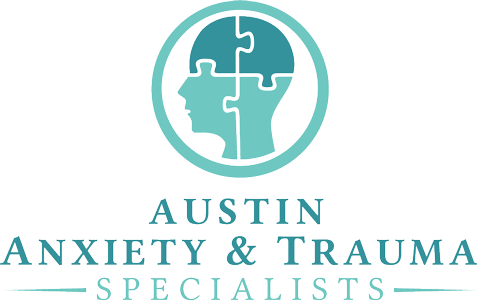In today’s fast-paced, modern world, it’s no secret that many of us struggle to get the quality sleep we need. Sleep deprivation has become all too common, affecting our mental health in profound ways. Approximately one in three adults in the United States report getting less than the recommended seven hours of sleep per night.
But the impact of inadequate sleep on our mental well-being cannot be ignored. That’s why understanding and practicing good sleep hygiene is essential. In this blog post, we’ll explore the science-backed benefits of sleep on mental health and provide you with practical tips to establish a sleep routine that promotes optimal well-being. It’s time to reclaim your rest.
The effects of sleep on mental health
Scientific evidence overwhelmingly supports the profound impact of sleep on our mental health. Here are some key benefits that highlight the importance of good sleep for mental well-being:
Healthy emotional regulation
Adequate sleep plays a crucial role in regulating our emotions. Research published in the journal Sleep has shown that sleep deprivation leads to heightened emotional reactivity and increased difficulty managing stress. On the other hand, getting sufficient sleep improves emotional stability, enabling us to navigate life’s challenges with greater resilience.
Improved cognitive functioning
Sleep deprivation significantly impairs cognitive functioning, including response speed, alertness, attention, and executive functions. The prefrontal cortex, responsible for executive functioning, is particularly vulnerable to the effects of sleep loss. On the other hand, obtaining sufficient and quality sleep has been shown to boost cognitive performance, enhancing attention, memory, and problem-solving abilities.
Reduced stress and anxiety
Sleep and stress have a reciprocal relationship. Chronic stress can disrupt sleep patterns, while poor sleep quality can exacerbate stress and anxiety levels. One study found that disrupted sleep can increase susceptibility to stress and mood disorders. Improving sleep quality has been found to reduce anxiety symptoms and enhance overall mental well-being.
Relieved symptoms of depression
Depression and sleep disturbances often go hand in hand. Sleep deprivation can contribute to the onset and severity of depressive symptoms, while depression itself can disrupt sleep patterns. Studies have consistently shown that addressing sleep issues can improve depressive symptoms, highlighting the vital role of sleep in maintaining mental wellness.
Read: Battle Depression with the Hero’s Journey
Best practices for good sleep hygiene
To optimize your sleep hygiene and promote mental well-being, follow these practical tips:
Establish a consistent sleep schedule. Go to bed and wake up at the same time each day (including weekends) to regulate your internal clock. Limit daytime napping to short power naps of around 20 minutes.
Create a sleep-friendly environment. Keep your bedroom at a comfortable temperature, dark, and quiet. Invest in comfortable bedding and remove electronic devices from your sleeping area. Some may benefit from listening to white or other soundscapes while falling asleep.
Wind down before bedtime. Engage in relaxing activities like reading, taking a warm bath, or practicing gentle stretching to signal your body that it’s time to unwind.
Limit stimulants and alcohol. Avoid consuming caffeine, nicotine, and alcohol, especially in the afternoon and evening. While alcohol may initially make you feel drowsy, it can disrupt your sleep later in the night, leading to poorer sleep quality and potential disturbances.
Exercise regularly. Engage in regular exercise, but finish your workout at least a few hours before bed to avoid difficulty falling asleep.
Manage stress and anxiety. Prioritize stress management techniques such as deep breathing exercises, meditation, grounding techniques, or journaling before bed to promote a peaceful sleep.
Avoid electronic devices before bed. Minimize exposure to blue light emitted by devices like smartphones and tablets at least an hour before bed to help your body prepare for restful sleep.
Seek therapy. If sleep disturbances persist despite implementing good sleep hygiene practices, it may be beneficial to seek professional help. Cognitive-behavioral therapy for insomnia (CBT-I) is a widely recognized and effective treatment for sleep-related difficulties. A therapist can work with you to address underlying issues, develop coping strategies, and modify behaviors that hinder sleep. Additionally, they can help you manage any co-occurring mental health conditions that contribute to sleep problems, such as anxiety or depression.
Read: How to Break the Cycle of Revenge Bedtime Procrastination
Unlock empowered mental health with better sleep
Sleep hygiene is a vital aspect of maintaining your mental health and overall well-being. By adopting these sleep-promoting habits and integrating them into your daily routine, you can unlock the full potential of a restful night’s sleep. Remember, developing good sleep hygiene takes time and consistency, so be patient with yourself. By prioritizing your sleep, you are investing in your mental and physical well-being, paving the way for a healthier, happier life.
Our anxiety specialists are trained in CBT and other proven treatments for mental conditions and mood disorders. Book an appointment with us at Austin Anxiety and Trauma Specialists and we’ll match you with a trained professional who can best help you manage anxiety, depression, and symptoms of sleep disorders. You can find peace again. We can help.






